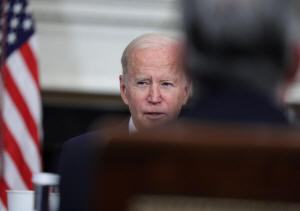|
Tuesday marks one year since President Joe Biden signed the
massive spending bill, which will disburse billions of dollars
to state and local governments to fix bridges and roads, while
expanding broadband internet access to millions of Americans.
National Economic Council Director Brian Deese said the
infrastructure, the Inflation Reduction Act and a bipartisan law
funding domestic semiconductor production together would
generate some $3.5 trillion in investment over the next decade.
Deese said the funding had put the United States into a better
position than nearly any other country in the world, laying the
ground for private investments and equipping the United States
to deal with major global economic challenges.
He rejected concerns raised by some Republicans that the added
funding would boost inflation, already running at close to 8%,
since investments in the digital economy, transportation and
other industrial sectors would improve efficiencies, reduce
supply chain pressures and lower costs in the longer term.
Former New Orleans Mayor Mitch Landrieu, who oversees
implementation of the law, said the Biden administration had
announced nearly 7,000 projects reaching over 4,000 communities
across all 50 states, Washington, D.C. and the U.S. territories.
He said the federal government had hired over 3,500 workers to
implement the law, which is already funding the repair and
replacement of 2,800 bridges and funding procurement of 5,000
new clean transit and school buses.
"But the reality is that we're just at the beginning," he said.
"Between now and the end of the year, we're going to kick off
even more major projects."
(Reporting by Andrea Shalal; Editing by David Gregorio)
[© 2022 Thomson Reuters. All rights
reserved.]
This material may not be published,
broadcast, rewritten or redistributed.
Thompson Reuters is solely responsible for this content.

|
|





